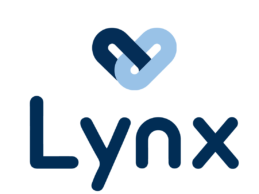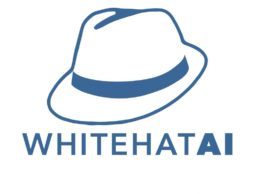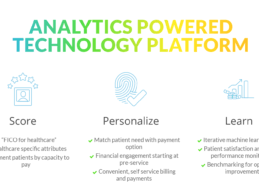What You Should Know:
- Lynx, a Boston-based API-connected healthcare payments, banking, and e-commerce platform announced today that it has emerged from stealth with $17.5M in equity financing led by Obvious Ventures and .406 Ventures with participation from Frist Cressey Ventures. Other investors include Winter Street Ventures (an investment subsidiary of Commonwealth Care Alliance), Shields Capital, and Huntington Avenue Ventures.
- Lynx’s goal is to introduce modern fintech to
Read More
Healthcare Payments
Semafone Integrates with Epic to Secure Healthcare Payments
What You Should Know:
- Today Semafone, a provider of data security solutions for call and contact centers, has announced an integration with EHR provider Epic to protect payment data and enhance the patient experience.
- Semafone’s Cardprotect Voice+ solution empowers customer-facing personnel in the healthcare industry to take secure, compliant payments over the telephone.
Cardprotect Voice+ Solution Overview
Utilizing patented dual-tone multi-frequency (DTMF) masking
Read More
Waystar Launches Price Transparency Solutions to Meet Consumer Demand
What You Should Know:
- Waystar, a provider of healthcare payments software, today announced the addition of the Text Statements feature to its suite of payment tools. This new solution enables patients to easily view and pay medical bills directly from their smartphone, bringing transparency and convenience to the patient financial experience – a long-standing focus for Waystar.
- Patients frequently don’t know what they’ll owe weeks, if not months after the point of care, If
Read More
2020’s Top 20 Digital Health M&A Deals Totaled $50B
Teladoc Health and Livongo Merge
The combination of Teladoc Health and Livongo creates a
global leader in consumer-centered virtual care. The combined company is
positioned to execute quantified opportunities to drive revenue synergies of
$100 million by the end of the second year following the close, reaching $500
million on a run-rate basis by 2025.
Price: $18.5B in value based on each share of Livongo
will be exchanged for 0.5920x shares of Teladoc Health plus cash consideration
of
Read More
Waystar Acquires Medicare RCM Company eSolutions at $1.3B Valuation
What You Should Know:
- Revenue cycle management provider Waystar acquires eSolutions, a provider of Medicare and Multi-Payer revenue cycle management, workflow automation, and data analytics tools at a $1.3B valuation.
- The acquisition will create the first unified
healthcare payments platform with both commercial and government payer
connectivity, resulting in greater value for providers.
Waystar, a provider of healthcare payments software, today
announced a definitive agreement
Read More
Sharecare Acquires WhiteHatAI to Enhance Healthcare Payment Integrity
What You Should Know:
- Sharecare acquires WhiteHatAI to provide health plan
and provider clients with additional capabilities to ensure healthcare payment
integrity
- WhiteHatAI’s ability to detect erroneous claims before
they are paid will help Sharecare’s health plan partners reduce costs
associated with FWA.
- Sharecare will integrate WhiteHatAI’s capabilities to
foster deeper engagement by enabling patients to both verify recent medical
procedures and report
Read More
Top 60 Health IT/Digital Health Mergers & Acquisitions in 2019
- From Google's acquisition of Fitbit to Philips acquisition of Carestream Health's health IT business, here is a look at some of the biggest health IT/digital health mergers & acquisitions in 2019 by each quarter.
Q1 M&A Activity
Johnson & Johnson Acquires Auris Health for $3.4B to Expand Digital Surgery Portfolio
Johnson & Johnson acquiresAuris Health, a developer of robotic technologies for $3.4 billion in cash. Auris Health is a privately-held developer of
Read More
How Value-Based Care is Changing the Way You Build Digital Health Companies
After years of talk, fee-for-service payment models are finally being challenged in a real way. With value-based care, providers are reimbursed based on patient health outcomes rather than the number of patients they see, which has begun to pass the burden of cost from insurers and employers to providers and patients.
Fundamentally, value-based care requires vendors as well as providers to operate differently, but new revenue models and a new approach to hiring deserve special consideration. In
Read More
Simplee Integrates Patient Financial Engagement Platform with Cerner RCM Solution
- Simplee integrates their patient financial engagement platform with Cerner’s revenue cycle management portfolio and consumer technology. - The integration makes it simple, efficient for providers to transform medical billing and payments into consumer-friendly experience.Simplee and Cerner Corporation today announced a new relationship aimed at price transparency, convenient billing and personalized payments options for consumers. Healthcare organizations will soon be able to use this
Read More
JPMorgan Chase to Acquire Healthcare Payments Solution InstaMed
JPMorgan Chase & Co., today announced its plan to acquire InstaMed, a Philadelphia-based healthcare payment network provider connecting providers, payers, and consumers on one platform. The acquisition will expand the bank's suite of payment services designed specifically for healthcare consumers, providers, and payers.Why InstaMed?U.S. healthcare spending is over $3 trillion and is challenged by significant transaction friction and inefficiency. Legacy approaches to bill pay, claims
Read More










